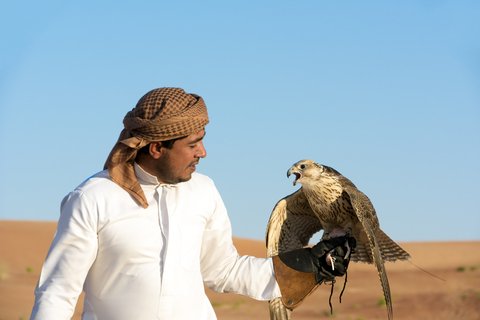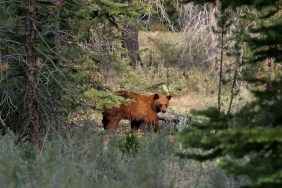The whereabouts of at least 26 Qataris — some of which were among the royal family — was still unknown a week after the group was abducted in southern Iraq during a falconry trip.
The Qataris had reportedly obtained a permit to hunt in the area and were escorted by Iraqi security forces who chose not to engage the roughly 100 gunmen in dozens of pickup trucks who stormed their hunting camp at dawn on Dec 16.
“I deny categorically that this issue (of the kidnapping) has any relation to the Iraqi government,” Foreign Minister Ibrahim al-Jaafari told reporters at a news conference in Kuwait Dec. 22, according to Reuters.
It’s hard to imagine anyone would visit Iraq for the wildlife, but that’s exactly what nature lovers from Iraq and neighboring gulf states have been doing in the country’s pristine southern desert.
Known for its abundance of falcons, the area has been gaining popularity among wealthy sheikhs for safaris and as hunting grounds for birds of prey and other small animals.
The hunters come both to trap falcons they can train later, typically peregrines, sakers and lanners, and also to hunt with the falcons they bring with them for small game and other birds. They are especially after the Asian houbara bustard, a large, fast bird that has been hunted to near-extinction in Qatar.
Falconry in the Middle East was historically an important skill among bedouin hunters and has been around for thousands of years. The area is also known for packs of wolves. Some 12 years after the Iraq war, hunting in the countryside brings a whole other set of dangers.
During the throes of the war in Iraq few people would imagine that the great southern desert of the country would become a wildlife and hunting attraction. Well, maybe it was a bit too soon.
Photo credit: Dreamstime








